“Will you marry me? It’s risky, but you’ll get fucked regularly”.
Four months before the Suez crisis, the moment in history when a begrudging, drizzly and grey Britain belatedly realised it wasn’t a super-power any more, the newly re-opened Royal Court Theatre, situated on the east side of Sloane Square in Chelsea, premiered the first play by a 26 year old actor called John Osborne.
Look Back In Anger was written in seventeen days while sitting in a deckchair on Morecambe pier . The legend is, of course, that Osborne’s play was an immediate success and in a flash British theatre was changed forever. Replaced by plays set in drab working working class northern bed-sits, the posh drawing-room dramas from playrights like Terrence Rattigan and Noel Coward, were seemingly banished overnight.
“I think the writer is trying to say: ‘Look how unlike Terence Rattigan I am, Ma!”.
The next day the director of the play Tony Richardson and Osborne sat in the little coffee shop next to the Royal Court theatre utterly depressed. Richardson broke the silence, and said:
“But what on earth did you expect? You didn’t expect them to like it, did you?”
Although the play was generally initially dismissed by most of the critics, a prescient 39 year old Kenneth Tynan wrote in the Observer -
“All the qualities are there, qualities one had despaired of ever seeing on the stage … I doubt if I could love anyone who did not wish to see Look Back in Anger.”
‘Anger’, as luvvies are apt to call the play, initially took very little money and the production was seen pretty much as a miserable failure. However, a few weeks into the run, the BBC decided to broadcast a short excerpt of the play one evening. The listeners liked what they heard, decided to go and see the play for themselves and takings immediately doubled at the box office. The effect snowballed and the play eventually transferred to the West End, subsequently to Broadway and was made into a film in 1958 starring Richard Burton. It certainly wasn’t overnight but Osborne had now become a very famous angry young man indeed.
Osborne went on to write successful plays such as The Entertainer (starring Sir Laurence Olivier), Luther and A Patriot For Me. He also won an oscar for his adaptation of Tom Jones in 1963. He occasionally continued acting and his acting role in the 1971 film Get Carter was highly regarded and indeed was a brilliant menacing performance.
By the early seventies, however, depression and alcoholism set in. Bad reviews of his latest unfashionable plays didn’t help and were woundingly taken to heart. For instance the Financial Times’ BA Young’s review of his play Sense of Attachment which was put on in 1972 – “This must surely be an end to his career in the theatre”.
Writers, and artists in general, are often excused character defects and bad behaviour, for the sake of their art, but the treatment Osborne dealt out to most of the women in his life (and surprisingly, considering his behaviour, there were a lot of them with five wives and numerous affairs) was often extremely vile and misogynistic.
He left his first wife shortly before the opening of Look Back In Anger, and subsequently married Mary Ure the leading actress in the play and the film. They lived in a house in Woodfall Street just off the Kings Road a few hundred yards from The Royal Court Theatre. It was a marriage that would only last five years and his love life was, by the early sixties, extremely complicated. He was on holiday in the South of France with his mistress the beautiful flame-haired dress designer Jocelyn Rickard in 1961, while at home Mary Ure was giving birth to a son (to be fair it probably wasn’t Osborne’s). At the same time, in Italy, the journalist Penelope Gilliatt, and future mother of his daughter, received a charming marriage proposal by letter;
“will you marry me? It’s risky, but you’ll get fucked regularly”.
The letter worked (one day I will understand women) and a year later he married Gilliatt with whom he had a daughter. As usual the marriage was a relatively short-lived affair, and he married the actress Jill Bennett in 1968. Again the marriage soon became unhappy and the couple, both drinking extremely heavily, ended up viciously trying to put each other down. At a party she once shouted;
“Look at him, the poofter can’t even get it up.”
Jill Bennett committed suicide in 1990, two years after their divorce. Osborne decided to add a spiteful extra chapter to his memoirs – expressing pity that he hadn’t been able to look into her open coffin and “drop a good, large mess in her eye”. Peggy Lee’s ‘Is That All There Is?’ was played at her funeral.
When Gilliatt also fell in to irreversible alcoholism, their daughter Nolan, who had been brought up in New York with her mother, came to live with Osborne and his fifth wife Helen, then both living in Kent. It was a chance for him to make amends for his own unhappy childhood (his father died of TB when Osborne was 10, for which, some reason, he always blamed his mother) but after just three years Osborne threw Nolan out of his house, removing her from school for good measure. She was just seventeen. Her only crime seems to have been typical teenage sullen behaviour and a lack of interest in her father’s hard-drinking thespian friends. He once shouted at her;
“There is not one of them who is not worth a dozen low lifes like you.”
She went to stay with the family of a schoolfriend and Osborne never saw her again. “Nolan’s birthday,” he wrote in his diary when she turned 22, “God rot her.”
Likewise when his mother died in 1993, he wrote an article for the Sunday Times which included a first line, ‘A year in which my mother died can’t be all bad.’
Osborne, who by this time had long left Chelsea’s Kings Road and started to act the country gent in Shropshire with his fifth wife Helen, died on Christmas Eve in 1994, 12 days after his 65th birthday. For once their marriage was a relatively devoted and private relationship. The last words that he wrote, found by his wife scrawled on a cigarette pack beside his deathbed in the hospital, were, “Sorry, I have sinned.”
Tags: depression, drinking, drunk, fifties, Kings Road, Look Back In Anger, sex, sixties
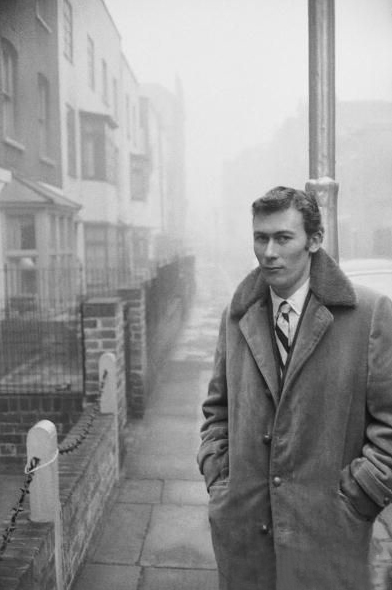
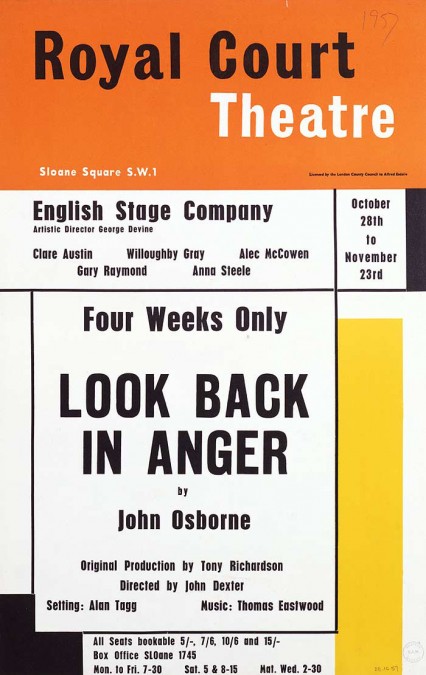
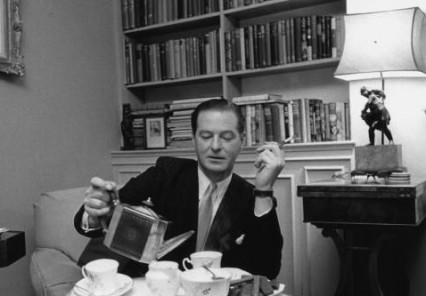
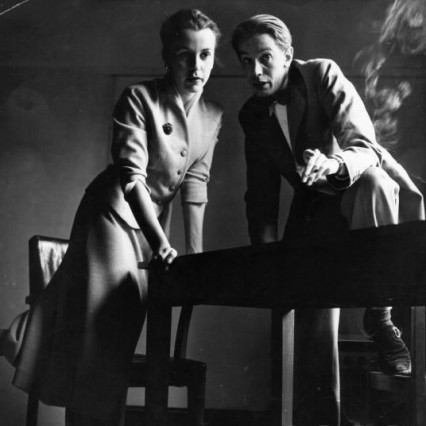
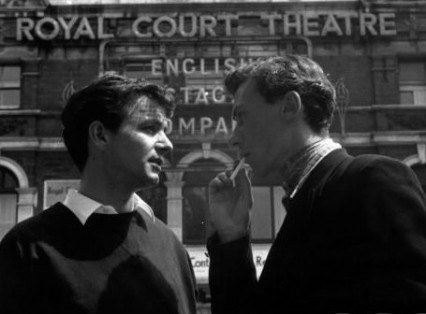
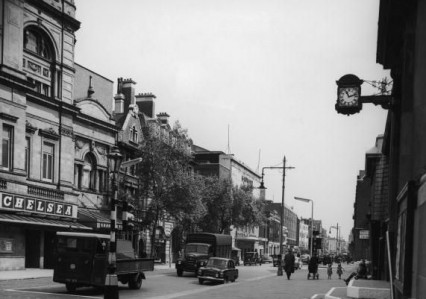
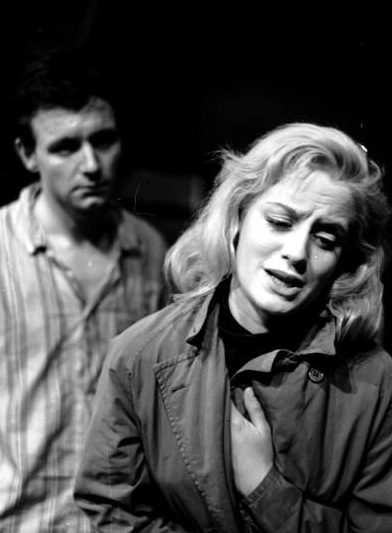
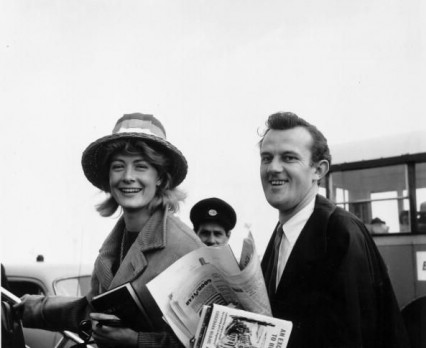
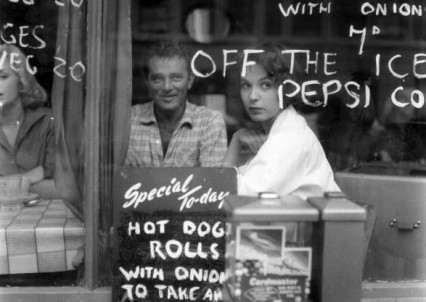
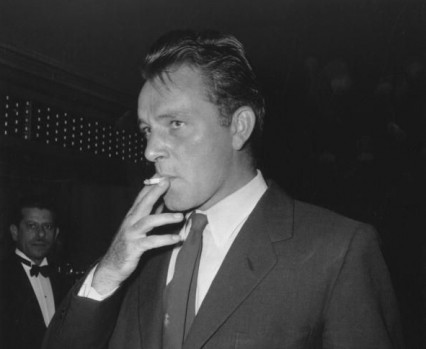
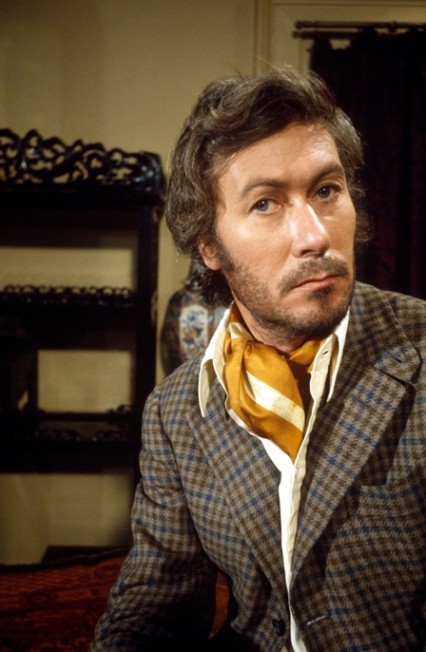
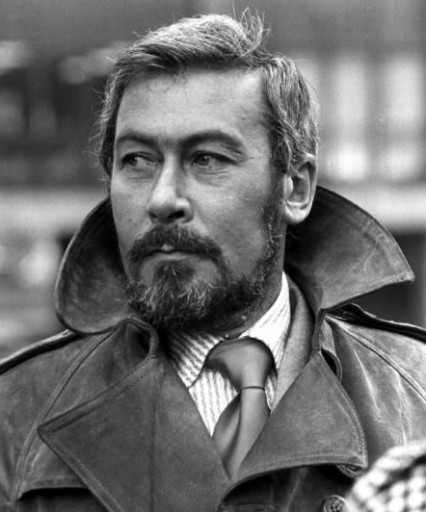
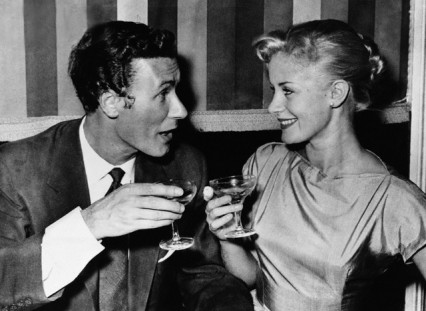
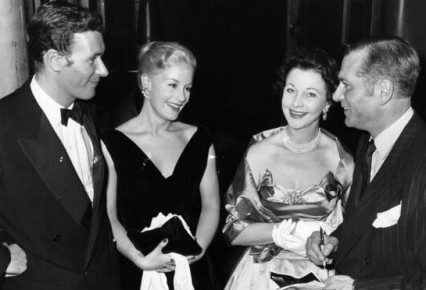
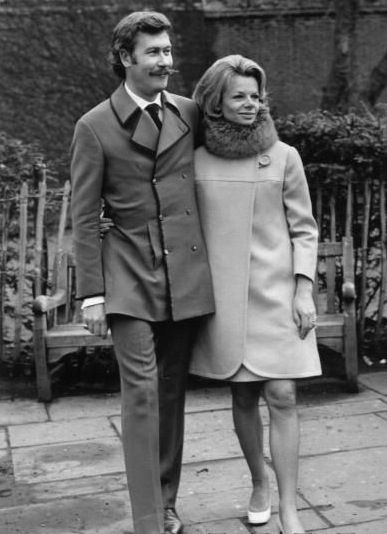
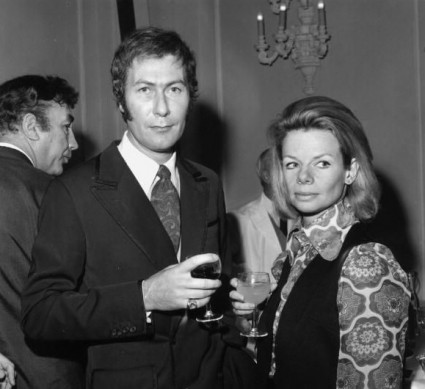
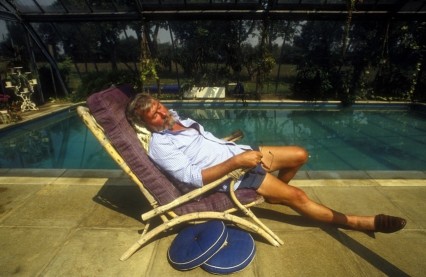
Great stuuff. Thanks.
I’ve just found this remarkable “blog” (the term doesn’t do it justice).
What a feast!
Much here no doubt to comment on as the days go by. Thanks for posting such unique items.
John Osbourne is wonderfully fey and sinister as the gangland boss in ‘Get Carter’. The film is also memorable for a scene in a Newcastle pub. The camera pans across a row of drinkers including one, clutching his beer, who has six fingers.
Terrific post! I didn’t know Osborne was so vile and I wrote a short Internet bio on the bloke!
Great site and what a playwright he was they say to be a genius you must be mad, well he was madder than anyone. Hope he rests in peace and his daughter Nolan has a better life.
Where did you find the biographical info on Osbourne. I’m researching him, would love to know your sources…
James
This is very interesting as a few years ago I was able to look around his home in Shropshire which was empty as Helen had just died and they were waiting for his library to be catalogued. The house was just as they left it. Fascinating!
Fascinating stuff as always! Who knew Osborne was such a cad? Hairy faced git indeed!
For some unknown reason I’m finding myself getting deeper into Penelope Gilliatt’s life, and to come across Osborne’s marriage proposal is both today’s best laugh and unsettling. Why are intelligent women so attracted to misogynists? Has anyone read his original teleplay for the Burtons entitled “Divorce His; Divorce Hers”?
Didn’t know Osborne was such an asshole. Very good article. Thanx!
Reading a bit more, I think I could write a bit more about his misogynistic ways. I live half a mile from where Chaplin was born by the way.
This was a prejudiced and inaccurate article. Osborne had sixteen years of happy marriage with his final wife: in your article you say he divorced Jill Bennett in 1988 instead of 1976. The proposal he sent to Gilliatt is wildly out of context, since they were having a fairly wild affair at the time. You have produced no evidence of misogyny, apart from the fact he had several wives. His first two wives had affairs, his third was an alcoholic, and his fourth openly called him a homosexual. There is no question that he hated Bennett, but outside of this you have done nothing to prove he was misogynistic, and I would point to his very happy final marriage to directly contradict this.
Sammy – you make some good points; however, with all due respect, how can you effectively explain what appears to be Osbourne’s sheer hatred of his own flesh and blood and the way in which he showed it? Nolan did not ask to be born, nor to have parents who were both, obviously, very ill. I hope that she is not irreparably damaged.
Hmm, rather simplistic to suggest that hating Nolan (even given hating Bennett and being deeply embarrassed by Nellie Beatrice) equates to hating all women. It’s probably more accurate to suggest that Osborne was a tormented creature desperately in need of his father and in possession of a lot of fame and money for which he had little time to prepare.
Oh, and that’s ‘Osborne’ by the way — there’s no u (‘non-u’, perhaps appropriate?)
hi, who is this Bennett you talk of that he hated so much? and why? one of Nolan’s friends? I am researching his plays and interested in his influences, i wonder why he hated his own daughter so much?
I have read Osborne’s book Damn you England. Which I found very interesting stuff. I have wondered why Osborne was said to be so nasty to his wives. If he disliked women so much why did he marry so many times. I saw a drama once about him on TV and he really disliked his mother perhaps it stems from that relationship who knows. I knew about Jill Bennett her time with Osborne but not much about his other wives so this article has given me more insight into Jon Osborne and his life. Look back in Anger to my mind has the women has victims bullied and verbally abused by the main character Jimmy Porter I think he’s called. Why Osborne was so nasty to his daughter I have no idea. But Look back in Anger isn’t just about that type of thing it is also about I think what Osborne thought was wrong with post war Britain in the 1950′s and he used the his medium as a playwright to convey this the the theatre going public at the time. I wonder how he got on with the likes of Laurence Olivier who I think Osborne wrote the Entertainer for. Olivier said once in an interview that Osborne and himself had a good relationship with. I think Osborne was a heavy drinker at times maybe this made his behaviour worse towards others.
It is obvious that Osborne suffered from intense self-loathing. That is really what made him so angry, not the establishment, not the status quo in 50′s Britain. He did not really hate the women in his life, but he absolutely hated himself, and being so acutely aware of that fact made him very angry. Men who self-loathe often find a kind of release in the abuse of the women closest to them, their wives, daughters, and girlfriends, either by physically beating them, or as in Osborne’s case, using his gift of language to cruelly taunt them and put them down. I cannot understand why he is so highly regarded, if in fact he still is. His career was relatively short, and his success was based on one play, which became notorious and then famous for its shock value. The most overrated playwright of the 20th century.
I’ve never found Osborne to be terribly interesting, or that significant a playwrite, still this is exactly the sort of trifle that made my- “Why don’t people realize my importance?”- Father lived on. The dry, urbane wit of Coward, et al, fascinated and compelled him. The only time he ever said “Thank You” to me was when I bought him tickets to “OH, COWARD” when it appeared at The Los Angeles Music Center in 1974. I can’t remember ever being told “I love you”. Of course, a true dilettante would never stoop to such mish mash, now would he? Didn’t work for Osborne, did it? Yes, I’m making a direct reference, in relation to dilettante. Dad was a frustrated, longing to be, Edwardian. Complete with tawdry, backstairs affairs with a Footman or three. All in his overly done, Rococo decorated mind. He died one afternoon in 1983, seemingly on command. I’m not sure how much of his death was simply medical or willed by he, himself, but there was a decidedly wry half smirk, half smile on his very dead face. Who knows? Maybe his reward was waiting and made clear to him seconds before the last beat of his under-appreciated, seldom exercised heart. I wonder what kinds of deals he had to strike with Old Lucifer to warrant that final expression. I can guarantee, however, Lucifer got rooked! (I’m 59 now, and a bit less self absorbed. Hope it helps…)
The Kings Road, the misogynist John Osborne and the women in his life « Another Nickel In The Machine
[url=http://www.bloggshop.no/adm/lv-salg.asp/]louis vuitton norge[/url]
Splendid article, thank you. Penelope Gilliatt ended up getting nailed at the New Yorker magazine for plagiarism (back when the magazine had standards, this was objectionable0, to add one more happy twist to this story.